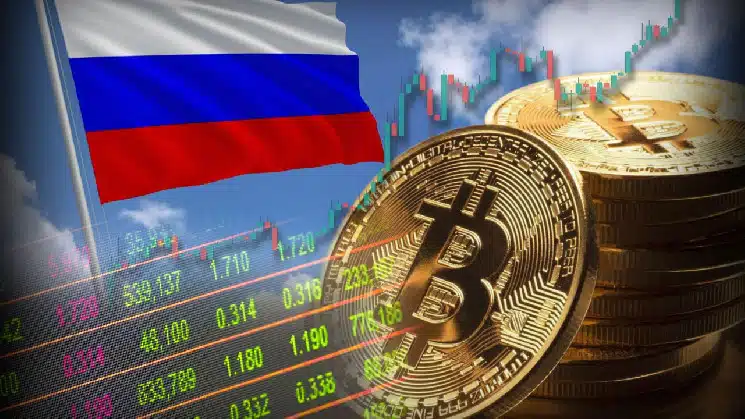Russia’s Prosecutor General has indicated that crypto exchanges should disclose the identities of the individuals conducting transactions, along with the transaction details, under the Russian Anti-Money Laundering (AML) regulations. The Prosecutor General’s office is demanding transparency within the cryptocurrency exchange industry as a measure for combating any potential fraudulent activities. While such regulations are nothing out of the ordinary given similar policies in other countries, it does spark a wider debate about privacy and security in the rapidly changing world of digital currencies.
To fully understand the context of this demand, it’s important to note that government authorities worldwide are growing more concerned about the potential for money laundering and other illegal activities through crypto exchanges. These digital platforms have the potential to shield transactions from law enforcement, and their decentralized nature can make it difficult to contain illicit activities. With this in mind, Russia’s request for transparency is a logical move.
In recent years, many nations, such as the US and the European Union (EU), have increasingly clamped down on money laundering and other criminal activities facilitated through crypto platforms. This has led to greater scrutiny of the transparency within the cryptocurrency world, and a push to regulate these exchanges and ensure they meet certain standards. Currently, legal requirements for cryptocurrency exchanges vary depending on the jurisdiction, so Russia is not alone in its quest for increased transparency.
The AML regulations in most countries generally require financial institutions to carry out customer identification and due diligence procedures for transactions exceeding a defined threshold. Additionally, companies are required to maintain records of customer transactions for a certain period, usually five to ten years. Russia’s demand that crypto exchanges share user data is a further extension of this principle, as it appears to apply to every transaction on the platform – not just those meeting the minimum threshold.
The primary concern for law enforcement and regulators is that anonymity can enable criminals to evade detection and prosecution. By requesting that crypto exchanges share user data, Russian authorities hope to limit illegal activities on the platforms by making it easier to identify and prosecute those responsible. However, this increased transparency raises the question of how far governments should go in controlling and monitoring digital currency transactions.
The risk of exposing users’ personal information without their consent means potential violations of their privacy rights. In addition, centralizing sensitive data can make it more vulnerable to hacking and data breaches. This may prompt users to turn to decentralized platforms like Bitcoin and Ethereum that provide a higher level of anonymity and security. Therefore, the balance between increased transparency and user privacy must be carefully considered.
Russia’s demand for greater transparency can also be seen as part of the wider global shift towards greater regulation of cryptocurrencies. While some countries, like the US and some EU member states, have introduced stricter rules on cryptocurrency exchanges, others, like China, have cracked down on the entire industry. The consensus is that the days of complete anonymity on digital currency platforms are numbered, though the extent to which governments can monitor these transactions remains a point of contention.
In conclusion, Russia’s call for crypto exchanges to share user data under AML regulations is an important step in the battle against money laundering and other illegal activities. This demand follows global trends towards greater regulation and transparency as governments worldwide clamp down on criminal activities facilitated through digital currency platforms. However, striking the right balance between additional transparency measures and privacy rights will be paramount in ensuring the protection of user data.
As the world transitions towards a more digitized financial system, it will be crucial for governments and regulators to find solutions that maintain the integrity of digital currencies and protect the rights and privacy of their users. As this debate continues, what remains clear is that the digital currency landscape will continue to evolve and grow in the coming years, with governments playing an increasingly significant role in shaping the future of the industry.


